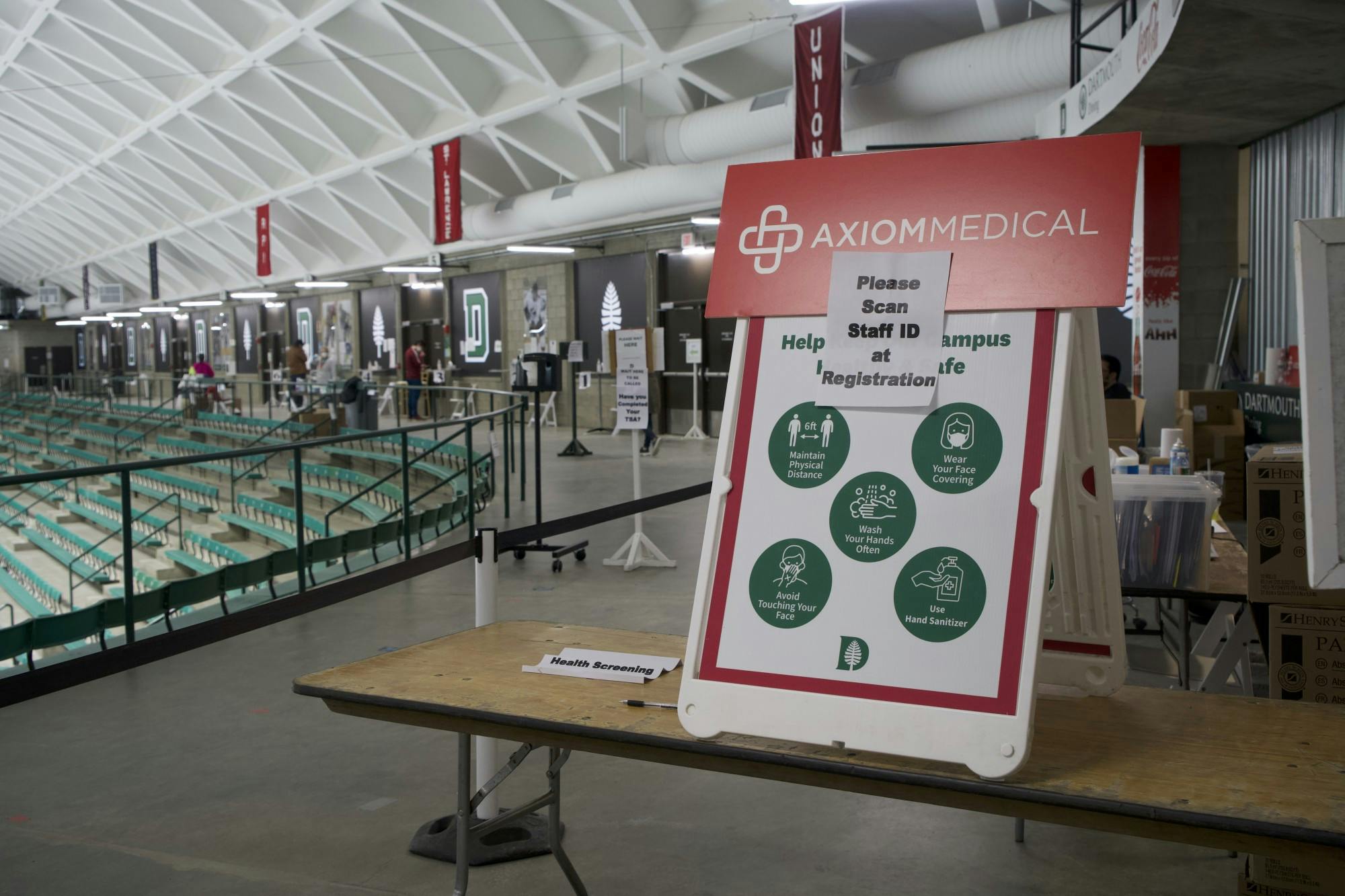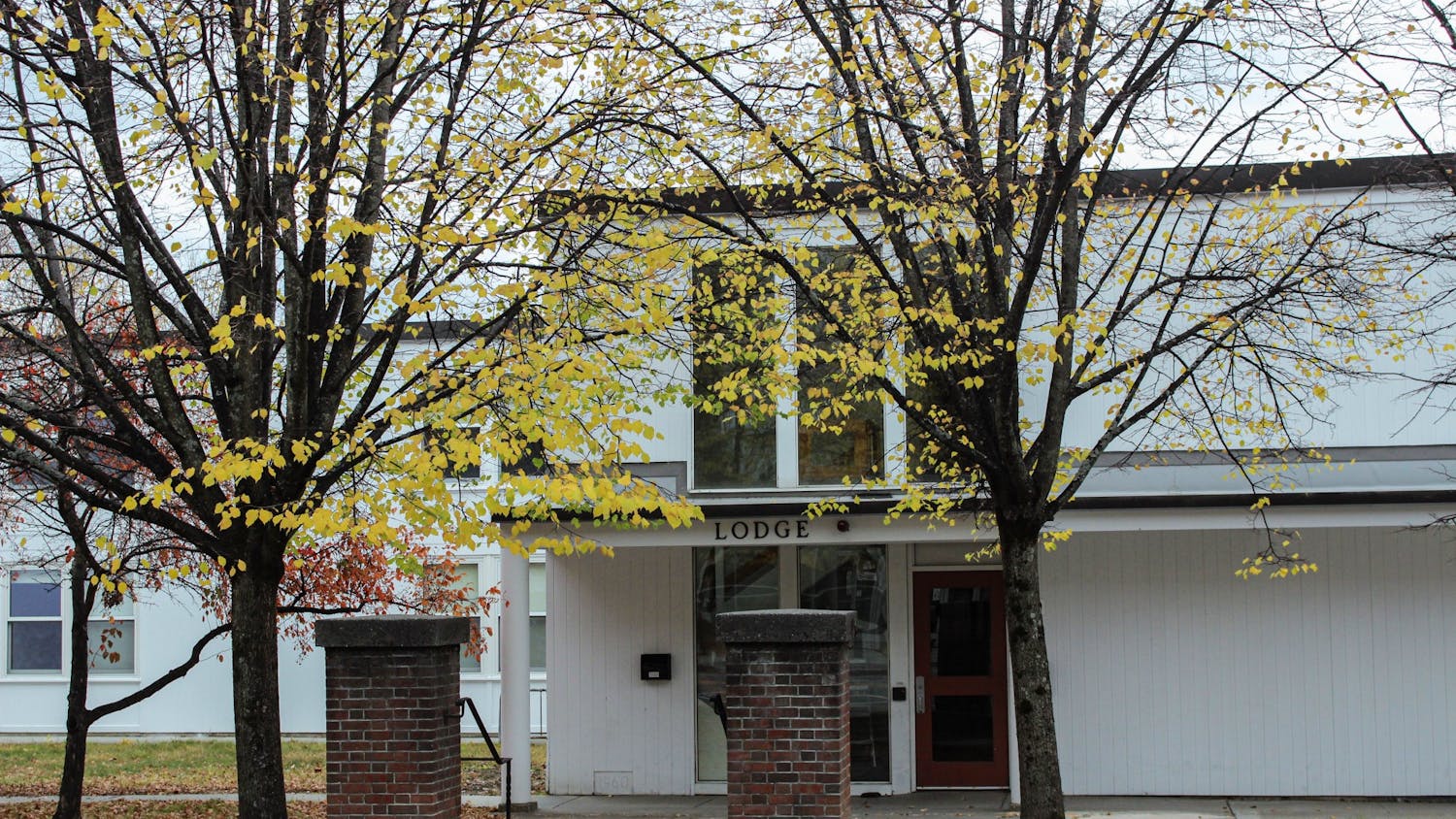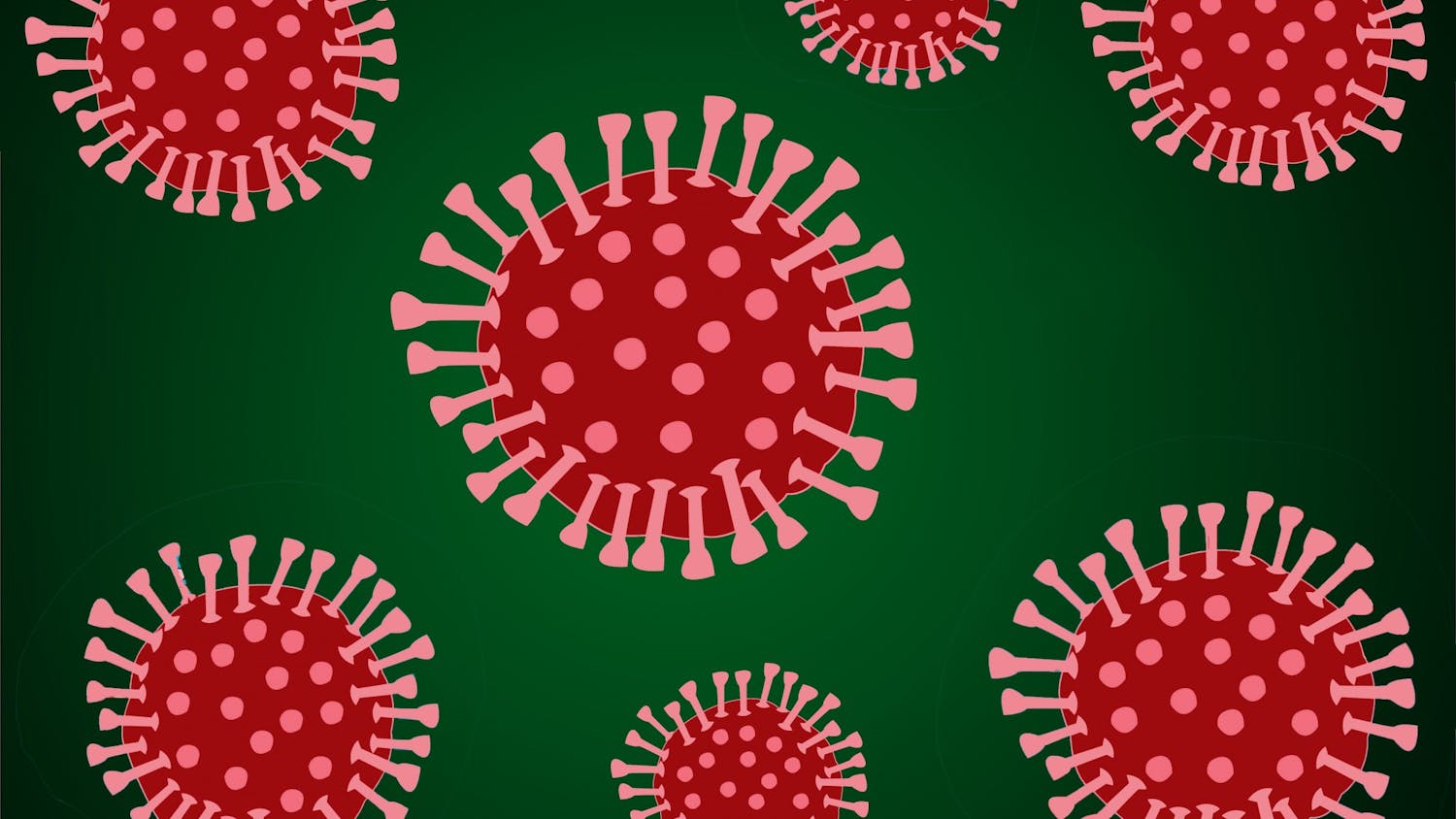On top of the everyday challenges of work during a pandemic, Dartmouth staff stepped up to the frontlines of the College’s recent COVID-19 outbreak — and thanks to safety protocols have come through mostly unscathed.
Delivered meals, disinfected new rooms and restricted access to campus became the sudden normal for hundreds of students placed into isolation or quarantine housing following a surge of infections that peaked at 143 active student cases. As of Monday, however, president of the Local 560 branch of the Service Employees’ International Union Chris Peck noted that there have been no documented cases of COVID-19 transmission from students to union staff, which includes members of Dartmouth Dining and Facilities Operations and Management. Peck added that frequent testing had identified a few isolated cases among staff throughout the pandemic.
College spokesperson Diana Lawrence confirmed in an email statement that the outbreak has “remained within the student population” and “has not involved staff or faculty.” Over the course of the outbreak, the active case count for faculty and staff has fluctuated between two and three unrelated cases. Lawrence wrote that contact tracing includes all close contacts among faculty and staff, not just students.
Alongside a rise in cases, the temporary change in housing for hundreds of students has required the coordination of the first custodial responders team, dining workers and Safety and Security.
When a student moves into quarantine or isolation housing, the FCR team may transport them from building to building, but Safety and Security delivers the room keys. Dining workers and FCR staff ensure that they receive a “hospitality bag” of snacks, water bottles and Dick’s House materials upon arrival.
The first custodial responders team, a group of just seven members who provide custodial and minor maintenance services for isolation and quarantine housing, as well as normal custodial work when the case count is low, has seen the biggest change following the sudden shift in hundreds of students’ living arrangements.
A member of the FCR staff, who requested anonymity due to concerns about confidentiality and potential professional repercussions, said that the team has been “very busy” since the outbreak began because of the increased need to disinfect rooms and transport students to isolation housing.
FCR staff have been trained on the use of powered air-purifying respirators — advanced, airtight PPE items that the custodial staffer described as resembling a “Ghostbuster jumpsuit” — and cleaning procedures designed to thoroughly disinfect an entire room.
“I feel safe with the gear and the PPE that we’ve been given to do our job,” the first custodial responder said. The job also came with a $6 per hour pay bump over a normal custodian, as well as call-in pay.
In addition to physical safety precautions, the custodian said interactions with students have largely gone smoothly. However, they noted feeling disrespected by students on several occasions. When picking up a COVID-19-positive student from a fraternity to take him to isolation housing, for example, they said that the student’s housemates followed them to the van, taking pictures and shouting that the student was “going to prison” and “on the COVID bus.”
“I was so pissed, I was like, ‘Put your damn phones away!’” the custodian remembered. “I had no problem speaking with them. The thing I have is, then, six brothers came out of the building, and they were all going frickin’ skiing.”
“We took out so many kids from that house,” they added, declining to identify what they said was a fraternity house. “It’s really very sad, like everyone thinks this is a big joke, and the last couple days have been nonstop crazy busy for us.”
The custodian also said that their coworkers had been “heckled” while driving and had heard similar comments.
Staff members responded to at least some incidents that may have led to the recent spike in cases.
Safety and Security director Keysi Montás said that officers responded to “a couple” on-campus residence hall parties with more than nine attendees in the days preceding the outbreak and “dispersed” them. He noted that no events they responded to were in Greek spaces, and none of these responses led to officers being exposed to COVID-19.
Hanover Police lieutenant Scott Rathburn said that Hanover Police did not receive any reports of noise complaints, disturbing the peace or disorderly conduct off campus — where Safety and Security lacks jurisdiction — between Feb. 17 and Feb. 23, after which cases began to rise.
Provost Joseph Helble wrote in a March 1 email that “noncompliant social interactions — particularly those where people are not wearing masks or observing adequate physical distancing” were likely to blame for the recent campus outbreak.
No officer has been quarantined or tested positive since the start of the pandemic, according to Montás.
Dartmouth Dining director Jon Plodzik noted that dining has not had a staffer test positive or enter quarantine since the fall. To accommodate the jump in need for delivered meals, dining services adjusted its schedules during the outbreak, rented two additional delivery vehicles and has three employees exclusively working on delivering food.
“If you’re in quarantine, you get a hot lunch and hot dinner from us every day, as well as some breakfast for the next morning,” Plodzik said. “We have a team working on putting together those components so that the assembly line, so to speak, goes as fast as possible.”
FCR team members have been offered COVID-19 vaccinations, which most readily accepted, according to the custodian. Other than FCRs and those who qualify under other criteria like age or first responder status, most staff have not been vaccinated. This includes Safety and Security officers, who — despite frequently responding to calls alongside vaccinated Dartmouth EMS personnel or Hanover Police officers — are classified as “security staff at nonclinical locations” under New Hampshire’s vaccine distribution guidelines, and thus ineligible.
“They do respond — they’re sometimes the first ones to a student’s room or an accident or something,” Peck said. “It makes me sick to my stomach to think that somebody could get sick and possibly die of COVID.”
Montás said that he disagreed with the state’s exclusion of security officers but noted that because some officers are also active EMTs or firefighters, they have been vaccinated anyway.
Other precautions are also in place: All officers have been certified and trained to wear N95 masks, and double masking is “recommended.” Students who need transport are screened for COVID-19 symptoms, windows are left open during the drive and vehicles are disinfected afterwards, Montás said. If there is any concern that a student may be infected, he added, either the FCR team or an ambulance will transport the student instead.
Peck also noted that twice-a-week testing for staff this winter, social distancing measures and safety trainings have worked to lower the risk of student-to-staff transmission.
“Actually, I haven’t heard a lot [of problems] — which is a good thing, because it means they’re calm, cool and collected,” Peck said of the staff he represents.
Non-FCR custodians have not seen a major change in their work environments, FO&M associate vice president Frank Roberts said, noting that they had all been trained on masking, physical distancing and disinfection protocols. Still, the uptick in cases remained a cause for concern, he said.
“Certainly, as the number of cases in our student population has increased, that has increased the concern for staff,” Roberts said. “... The anxiety goes up as the number of cases goes up.”
Peck said he is “most concerned with” custodians in the Office of Residential Life because they work in residence halls, where transmission of COVID-19 is more likely than in a library or a grab-and-go dining hall.
Another, longer term question the College may face among staff is vaccine hesitancy. The first custodial responder said that two of their colleagues had not yet been vaccinated because they wanted to see “more research.” Peck said that he knows a “handful” of staff who are skeptical, but added that “minds are changing as [the pandemic] goes on.” Whether the College would mandate vaccinations for staff as they have for students, he said, remains an open question.
“We highly recommend that all members of the Dartmouth community get vaccinated as soon as they are eligible,” Lawrence wrote when asked whether the College would mandate the vaccine. She noted that most who are eligible “have jumped at the opportunity.”
Overall, Peck praised the College’s response to the outbreak, noting that the union had not had any serious conflicts with the administration since the pandemic began.
“The College is taking it really seriously, obviously, to protect us as a group,” he said. “... I mean, there are some people that think they’re going too far with some stuff, but I wouldn’t make that argument — the safer, the better.”





